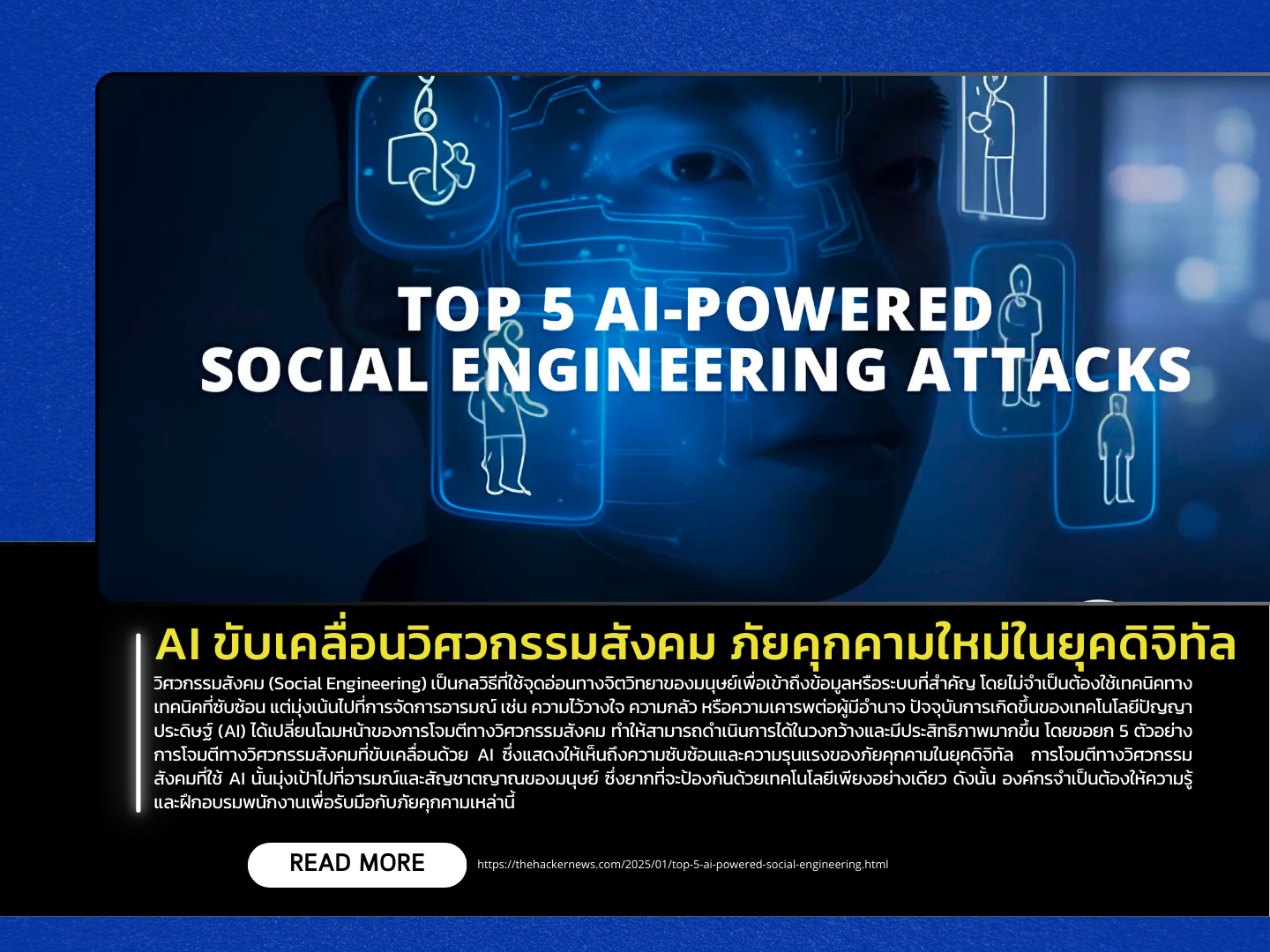47/68 Tuesday, February 4, 2025

Social engineering is a tactic that exploits human psychological weaknesses to gain access to sensitive information or systems, often without requiring sophisticated technical skills. Instead, it manipulates emotions such as trust, fear, or respect for authority. The rise of artificial intelligence (AI) has transformed the landscape of social engineering attacks, making them more scalable and effective. Below are five AI-driven social engineering attacks that illustrate the complexity and severity of digital-age threats:
- AI-Generated Fake Audio Influencing the Slovak Elections
Before the 2023 elections in Slovakia, an AI-generated fake audio clip was circulated online. The clip imitated the voices of Michal Šimečka, a candidate from the Progressive Slovakia party, and Monika Tódová, a well-known journalist. It falsely suggested vote-buying and beer price increases. Although the clip was debunked just days before the election, it still affected the outcome, with Šimečka’s party finishing second. - $25 Million Deepfake Video Call Scam
In February 2024, Arup, a global engineering firm, fell victim to a sophisticated AI attack. Fraudsters used AI-generated deepfake video calls to impersonate the company’s CFO and other employees. A finance employee, believing the call was legitimate, transferred $25 million to the attackers. - $1 Million AI-Generated Voice Ransom Scam
In 2023, a mother in the United States received a terrifying call from someone who sounded exactly like her 15-year-old daughter. The call claimed the girl had been kidnapped, and a man’s voice demanded a $1 million ransom. Shocked and convinced by the realistic AI-generated voice, the mother nearly complied before realizing it was a scam. This case highlights the growing danger of AI-generated voice cloning. - Facebook AI Chatbot Phishing Attack
Attackers leveraged AI-powered chatbots to trick Facebook users. They sent fake emails impersonating Facebook, warning users that their accounts would be suspended unless they clicked an “Appeal Here” button. Once clicked, a chatbot appeared, requesting login credentials. This attack exploited fear and urgency to deceive victims. - Deepfake Video of Ukraine’s President
In 2022, hackers infiltrated the Ukraine24 television network and broadcasted a deepfake video of President Volodymyr Zelenskyy. The fabricated video urged Ukrainians to surrender to Russia. While the deepfake had noticeable flaws, it still caused widespread confusion and demonstrated how AI-generated media can be weaponized in information warfare.
How to Defend Against AI-Driven Social Engineering Attacks
AI-based social engineering attacks target human emotions and instincts, making them difficult to prevent with technology alone. Organizations must focus on education and training to combat these threats. Here are three key strategies:
- Raise Awareness – Educate employees on AI-generated threats, such as deepfakes, through case studies and training sessions.
- Simulate Attacks – Conduct social engineering simulations to help employees recognize deceptive tactics in real-world scenarios.
- Enhance Security Systems – Regularly review organizational security measures and access controls to mitigate risks.
Source https://thehackernews.com/2025/01/top-5-ai-powered-social-engineering.html
